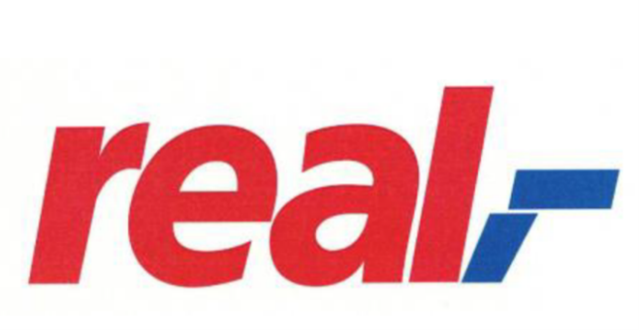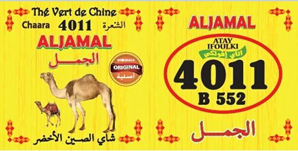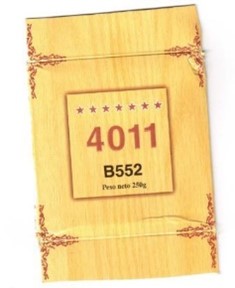Overview of CJEU case law from 12 April 2025 to 4 May 2025
Below we present an overview of CJEU case law concerning intellectual property for the period from 12 April 2025 to 4 May 2025.
- T-338/24 – Mobility Trader v EUIPO – Cala and Ruiz (hey car select)
– The case concerned opposition proceedings (likelihood of confusion).
– Mobility Trader Holding GmbH applied for a device mark  in Classes 9, 35, 36, 38, 39 and 42 (in Class 35, i.a. advertising, marketing and promotional services; marketing research; and in Class 39: vehicle rental).
in Classes 9, 35, 36, 38, 39 and 42 (in Class 35, i.a. advertising, marketing and promotional services; marketing research; and in Class 39: vehicle rental).
– Gestión e intermediación Cala and Ruiz SL filed an opposition based on a prior trademark  (registered in Class 35, i.a. wholesale and retail trade and trade via global networks in the field of registration of new, used and second-hand vehicles).
(registered in Class 35, i.a. wholesale and retail trade and trade via global networks in the field of registration of new, used and second-hand vehicles).
– The EUIPO Opposition Division partially upheld the opposition, namely in relation to services in Classes 35 and 39.
– Both parties filed appeals, which were dismissed by the Board of Appeal. It pointed out that the marks were not visually and conceptually similar, while they were phonetically similar to a high degree. Interestingly, the Board of Appeal found that, since the services at issue could be recommended and advertised orally, in particular on the radio, particular importance should be given to the phonetic similarity and that there was a likelihood of confusion for at least part of the relevant public.
– The CJEU dismissed the appeal. It pointed out that there was identity or similarity between the services; no visual similarity; a high degree of phonetic similarity; and no conceptual similarity.
– Ultimately, the CJEU pointed out that there was a likelihood of confusion. It was relevant that the disputed services could be recommended and advertised orally, in particular on the radio, which meant that particular importance had to be given to the phonetic similarity.
Details of the case:
- T-312/24 – Real Pharm Group v EUIPO – real (REAL PHARM)
– The case concerned opposition proceedings (likelihood of confusion).
– Real Pharm Group sp. z o.o. filed a trademark application for:  (Class 5, i.a. dietary supplements and dietary preparations, and Class 35, i.a. wholesale services in the field of dietary supplements).
(Class 5, i.a. dietary supplements and dietary preparations, and Class 35, i.a. wholesale services in the field of dietary supplements).
– real GmbH filed an opposition to the registration of the trademark based on a prior trademark:  (Class 5, i.a. pharmaceutical and veterinary preparations, and Class 35, i.a. advertising; retail services and presentation of goods related to the sale of food).
(Class 5, i.a. pharmaceutical and veterinary preparations, and Class 35, i.a. advertising; retail services and presentation of goods related to the sale of food).
– The Opposition Division upheld the opposition. The Board of Appeal dismissed the appeal, citing the likelihood of confusion resulting both from the identity or similarity of the goods and services at issue and from the similarity of the conflicting marks.
– The CJEU dismissed the action.
Details of the case:
- T-298/24 – DoDo Services v. EUIPO – doqo (doqo)
– The case concerned opposition proceedings (likelihood of confusion).
– Doqo filed a trademark application for  (Classes 9, 35, 38 and 42).
(Classes 9, 35, 38 and 42).
– DoDo Services s. r. o. filed an opposition based on a prior trademark  (Classes 35 and 38).
(Classes 35 and 38).
– The Opposition Division partially upheld the opposition.
– The Board of Appeal upheld the appeal, annulled the decision of the Opposition Division and rejected the opposition in its entirety. It pointed out that, given the very low degree of visual similarity between the conflicting marks and their low degree of phonetic similarity, there was no likelihood of confusion.
– The CJEU dismissed the appeal. It pointed out that there was identity or similarity between the services; a low degree of visual similarity (in particular due to the graphic differences, the colours used and the font); a medium degree of phonetic similarity; and no conceptual similarity.
– Ultimately, the CJEU pointed out that there was no likelihood of confusion in the present case.
Details of the case:
- T-251/24 – Serana Europe v EUIPO – Cytogen Produkte für Medizin + Forschung (Marrowgrow)
– The case concerned opposition proceedings (due to prior unregistered marks).
– Serana Europe applied for registration of the word mark Marrowgrow (Class 1, i.a. cytogenetic substrates for industrial purposes; Class 5 Cytogenetic substrates for medical purposes);
– Cytogen Produkte für Medizin + Forschung GmbH, filed an opposition to the registration of the trademark based on prior unregistered trademarks Marrowgrow, which are protected in Bulgaria, the Czech Republic, Germany and Austria mainly for human culture media for in vitro diagnostics, medical devices for in vitro diagnostics of human genetic material, cytogenetic media.
– The Opposition Division rejected the opposition, finding that the evidence submitted by the intervener was insufficient to show that the prior marks had been used in the course of trade for the goods on which the opposition was based before the relevant date and in the territories concerned, and that they had a significance beyond the local area.
– The Board of Appeal annulled the Opposition Division’s decision and referred the case back to that division for re-examination of the use of the unregistered signs.
– The CJEU dismissed the action.
Details of the case:
- T-242/24 – Versiontech v EUIPO – Verizon Trademark Services (VersionTech)
– The case concerned proceedings for the invalidity of a trademark (on grounds of likelihood of confusion).
– Verizon Trademark Services LLC filed an application for invalidity of the word trademark: VersionTech (Class 9, i.a. digital video recorders; tablet computers and Class 11);
– The application for invalidity was based on: the prior EU word mark VERIZON (Classes 9, 14, 16, 18, 24, 25, 28, 35, 36, 37, 38, 39, 41, 42, 43 and 45)
– The Cancellation Division rejected the application for a declaration of invalidity in its entirety.
– The Board of Appeal found that there was a likelihood of confusion and declared the mark invalid.
– The CJEU upheld the appeal. It pointed out that, first, the relevant public has a level of attention that ranges from average to high. Secondly, the significant visual and phonetic differences between the marks at issue, including their length, structure, rhythm and intonation, as well as the fact that they are conceptually different, are sufficient to exclude any likelihood of confusion on the part of the relevant public.
Details of the case:
- T-241/24 – AirPlus International GmbH v EUIPO – Repsol (R+)
– The case concerned opposition proceedings (on the grounds of likelihood of confusion).
– Repsol, SA, filed an application with EUIPO for registration of an EU trademark for the following figurative sign:  (Classes 9, 35 and 36 of the Nice Classification).
(Classes 9, 35 and 36 of the Nice Classification).
– AirPlus International GmbH filed an opposition based on its prior trademarks AirPlus International, AirPlus Connect and AirPlus CardControl and a figurative trademark  (i.a. in Classes 9, 35, 36 and 42).
(i.a. in Classes 9, 35, 36 and 42).
– The Opposition Division rejected the opposition.
– The Board of Appeal dismissed the appeal. It pointed to the lack of likelihood of confusion, in particular due to the significant visual difference between the conflicting marks, the minor impact of the conceptual similarity of those marks on the likelihood of confusion and the high level of attention of the relevant public.
– The CJEU dismissed the appeal. It pointed out that the goods and services covered by the compared marks are usually purchased on the basis of a written offer or via the Internet, which means that consumers would have the opportunity to visually familiarise themselves with the compared marks.
Details of the case:
- T-95/24 – Laura Food v EUIPO – Morghati Abderrahim (THE VERT DE CHINE 4011 ALJAMAL ALJAMAL 4011 B 552)
– The case concerned opposition proceedings (on the grounds of likelihood of confusion).
– Laura Food Srl applied for a trademark:  (class 29, 30 – tea, and 32)
(class 29, 30 – tea, and 32)
– Morghati Abderrahim, Ditta Individual filed an opposition based on prior trademarks:  (Class 30: ‘coffee, tea, cocoa and artificial coffee; rice; tapioca and sago; flour and preparations of cereals; bread, confectionery and sweets; ice cream; sugar, honey, molasses; yeast, baking powder; salt; mustard; vinegar, sauces (condiments); spices; ice” and
(Class 30: ‘coffee, tea, cocoa and artificial coffee; rice; tapioca and sago; flour and preparations of cereals; bread, confectionery and sweets; ice cream; sugar, honey, molasses; yeast, baking powder; salt; mustard; vinegar, sauces (condiments); spices; ice” and  (Class 30: Coffee, tea and cocoa)
(Class 30: Coffee, tea and cocoa)
– The Opposition Division partially upheld the opposition in respect of certain goods in Classes 29 and 32 and in respect of all goods in Class 30.
– The Board of Appeal dismissed the appeal. It found that the contested goods are identical, that the relevant territory is the territory of the European Union, and that the contested goods are intended for the general public, whose level of attention is at most average. It then found that the relevant public could be divided into two groups, considering that a small part of that public would perceive, in the context of tea, the number ‘4011’ and the alphanumeric element ‘b 552’ of the conflicting signs as descriptive indications of the quality of the tea, but that a significant part of that group of consumers would perceive those elements solely as the letters and numbers which they identify.
– The applicant pointed out that the element ‘4011’ in the contested marks refers to a type of green tea from China or to the type of tea.
– The CJEU dismissed the action. It agreed with the Board of Appeal that the elements ‘4011’ have no descriptive meaning for the majority of the relevant public.
Details of the case:
- T-679/20 – Dr. August Wolff v EUIPO – Combe International (Vagisan)
– The case concerned proceedings for the invalidity of a trade mark.
– Dr August Wolff GmbH & Co. KG Arzneimittel is the entitled to the word mark: Vagisan (Classes 3 and 5).
– Combe International LLC filed an application for invalidation of the above trademark based on prior trademarks: British word mark VAGISIL (Class 3); British word mark VAGISIL (Class 5);
– On 11 September 2019, the Cancellation Division upheld the application for invalidation.
– The Board of Appeal dismissed the appeal, indicating that there was a likelihood of confusion as the marks were visually and phonetically similar to a moderate degree and conceptually similar to a low degree. Furthermore, it pointed out that the applicant could have relied on prior rights protected in the United Kingdom until the end of the transition period specified in the Agreement on the withdrawal of the United Kingdom of Great Britain and Northern Ireland from the European Union.
– The CJEU dismissed the action, agreeing with the Board of Appeal’s assessment of the likelihood of confusion.
Details of the case:
- T-83/20 RENV – bonnanwalt v EUIPO – Bayerischer Rundfunk e. a. (tagesschau)
– The case concerned proceedings for a declaration of revocation of a trade mark.
– Bayerischer Rundfunk is the entitled to the word trademark: ‘tagesschau’ (Classes 9, 16, 21, 25, 26, 28, 38, 41 and 42)
– bonnanwalt Vermögens- und Beteiligungsgesellschaft mbH filed an application for a declaration of revocation of the above trademark.
– The Cancellation Division partially upheld the application, with the exception of the following services in Class 41: ‘Production and provision of news programmes and reports’.
– The applicant filed an appeal, requesting that the decision of the Cancellation Division be set aside in the part in which the application for a declaration of revocation was dismissed.
– The Board of Appeal partially upheld the appeal. It found that the trademark was also not used in relation to services ‘production of news programmes and reports’ in Class 41 (the trademark therefore remained registered for: ‘provision of news programmes and reports’).
– The CJEU dismissed the action, stating that the Board of Appeal had not erred in its appraisal of evidence of genuine use, which was sufficient to prove use of the mark for services: ‘provision of news programmes and news reporting’.
Details of the case:
See more:
Review of CJEU case law from 2.02.2026 to 6.02.2026
Judgment of 5 February 2026, EUIPO v Nowhere Co. Ltd, Case C‑337/22 P – The case concerned opposition proceedings relating to the application for registration of the EU figurative trade mark APE TEES: – On 30 June 2015, Mr Ye filed an application for an EU trade...
Review of CJEU case law from 26.01.2026 to 30.01.2026
Judgment – of 28 January 2026 – Montepelayo, SLU v. EUIPO, Case T-203/25– The case concerned opposition proceedings against the registration of an EU word mark. – Montepelayo, SLU filed an EU word mark application for TELOTRÓN for goods and services in Classes 5...
Review of CJEU case law from 19.01.2026 to 23.01.2026
Hesse v EUIPO – 19.01.2026 – Ferrari (TESTAROSSA), Case C‑597/25 P– The case concerned the procedure under Article 58a of the Statute of the Court of Justice for determining whether an appeal against a judgment of the General Court in EU trade mark proceedings should...
